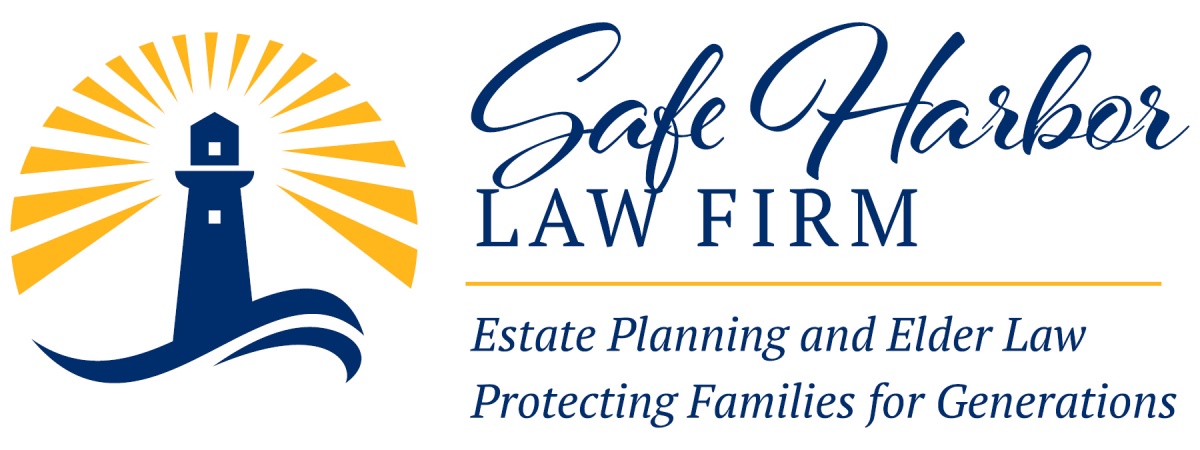Considerations when Gifting to Grandchildren
Safe Harbor Law Firm
For more information about the author, click to view their website: Safe Harbor Law Firm
Oct 09, 2023
Florida - Southwest
Email US
Click to Email Us
|
They say something magical happens when a parent turns into a
grandparent. Of course there’s the unconditional love and admiration for this
child of your child; and there’s also the urge to shower them with toys,
clothes, presents, money and other gifts!
|
Other Articles You May Like
Estate Plan Check-Ups
Estate Plan Check-UpsEffective estate planning is personal, and its more than just deciding who to leave your assets to once you die. Effective estate planning is a comprehensive process that encompasses pre-need planning: health care decisions, financial management, and maintaining a delicate balance between independence and security. Like your preventive doctor visits, you should regularly check in on your estate plan to ensure it fits your current needs, considers and plans for potential future care needs, and will give effect to your wishes now and in the future. Generally, estate planning involves creating a last will and testament, possibly a revocable trust, possibly an asset protection trust or a supplemental needs trust for a loved one who is unable to manage finances or may be vulnerable to abuse or exploitation. Estate planning also involves important advanced directives, such as a durable financial power of attorney, a health care power of attorney, and a living will. Creating an estate plan, or getting my affairs in order, tends to be an item on our to-do lists, for us to get done and move on to the next thing. However, while it may not be something you have to look at every month, or even every year, once your initial estate plan is completed, it is something that needs to be reviewed with some regularity.Most people get an annual physical when they are healthy, not when they are sick. They do this because they want to proactively spot any issues that could cause them to become ill in the future. The same concept can and should be applied when it comes to reviewing and updating your estate plan. Your estate plan may be healthy now, but you want to make sure that it stays that way by checking it regularly, to ensure it fits your needs and family circumstances, protects and provides for you now, and accomplishes your goals and wishes in the future. Editors Note: This article is for informational purposes only and is not intended to be legal advice. This article was submitted by Ashley Day, Esq. Ashley Day Law, LLC. Reach her at 251-277-3377.
Nurturing Harmony in Caregiving: Open Communication and Conflict Prevention
Caring for aging parents involves crucial decisions regarding who will provide the necessary care and in what setting. However, these decisions can often give rise to conflicts among family members, particularly when one sibling assumes the role of primary caregiver. Through our work with clients and families, we frequently encounter these stressful and emotionally charged situations, creating a perfect storm for family disputes and distress.Reflecting on recent consultations with families, it becomes apparent that a key factor contributing to conflicts is the failure of aging parents to openly express their wishes and expectations regarding potential scenarios. When parents do not communicate their desires early and consistently, adult children are left to speculate about their parents preferences, leading to differences of opinion and sibling conflicts. To prevent such difficulties, we urge you to initiate conversations with your adult children about what if scenarios and discuss your wishes and preferences openly. This proactive effort can serve as your conflict prevention plan, saving you and your loved ones from engaging in conflict resolution in the future.In situations where a family member becomes a paid caregiver, it is essential to establish a formal caregiver agreement. This agreement serves multiple purposes, including clarifying the financial aspects of the care being provided. By having a caregiver agreement in place, you can prevent misunderstandings and promote a harmonious caregiving environment within your family. It ensures that everyone is on the same page and understands the expectations and parameters involved.Above all, open and honest communication is the key to fostering understanding and preventing conflicts among family members. We strongly recommend engaging in conversations early and frequently to address concerns, preferences, and potential challenges that may arise in caregiving situations. By doing so, you can promote a supportive and respectful environment where everyones needs are acknowledged and considered.At Bellomo & Associates, we believe in nurturing harmony within families facing caregiving challenges. Our experienced team is dedicated to providing comprehensive estate planning and elder law services that cater to your unique circumstances. Start the conversation with your adult children today, discussing your wishes, expectations, and potential what if scenarios. Visit our website to learn more about how we can support you and register for our free educational workshop. Let us help you pave the way for peaceful resolutions and a smoother caregiving journey.
Dealing with Deed Spam Mail
Have you recently purchased a home or made any changes to your propertys deed? Have you received an unexpected letter offering a copy of your deed for a fee? If so, youve likely encountered spam mail.Theres a company known as Land Solutions based in California that sends out Recorder of Deed Notices to individuals with newly recorded deeds. These notices claim that you can obtain a copy of your deed for a service fee of $109.00. Since the transfer of a deed is a matter of public record, they can easily access your name, address, and property information. While what theyre doing may not be a scam, we prefer to refer to it as spam. The truth is, the party responsible for transferring the deed, or even your local recorder of deeds, can provide you with a copy for a small fee or sometimes even for free. Theres no need to pay a separate company for this service.At Bellomo & Associates, many of our clients have received this type of letter, and we are delighted that they reached out to us before paying an unnecessary fee for a document we already possess on their behalf.When you receive such correspondence after making any changes, its crucial to research the company that sent it, reach out to the parties you were working with, and carefully read the fine print. In the case of these specific notices, the fine print typically states that it is not a bill but a solicitation, and you are not legally obligated to pay the amount requested.Together, we can minimize the impact of spam by working collectively and staying informed.
Local Services By This Author
Safe Harbor Law Firm
Elder Law 28901 Trails Edge Blvd, Suite 204, Bonita Springs, Florida, 34134At Safe Harbor Law Firm (formally known as Buff Law Firm PLLC), we focus on estate planning, elder law, and closely related practice areas. Our true focus, however, is helping families plan for and take control of their future. This can involve:Ensuring your assets will go to the people you want, when you want, in the manner you want after you pass awayPreparing for the possibility that you or your spouse will need expensive long-term careand helping you find ways to pay for itEnsuring that people you trust have the authority to make financial and medical decisions on your behalf in the event of incapacityProtecting your assets and those of your heirs against threats such as creditors, lawsuits, divorce, the high cost of long-term care, and moreGuiding your loved ones through the probate and/or trust administration processSafe Harbor Law Firm has helped families from all walks of life find solutions to challenges like these and many more. We welcome the opportunity to do the same for you. Ultimately, our goal is to help you enjoy the peace of mind that comes from having a plan in place for the future. We invite you to contact us for a personal meeting to discuss your particular needs and goals.

